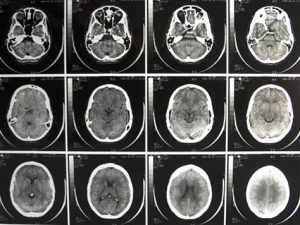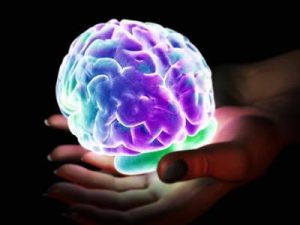5 Things that Happen to Your Brain when You have a Chronic Illness

A chronic illness is any illness that lasts for 3 months or more. As of 2012 and CDC puts the estimation for chronic illness at 117 million adults in America. Mental illnesses are on this list as well as cancer, diabetes, heart disease, and many others as well. There is a myriad of things to consider when trying to figure out the impact of chronic illnesses on the brain. We know what they do to the body, but what happens to the brain when you have a chronic illness? This list from Psych2Go hopes to answer that question, at least in part.
1. Chronic illnesses can create mental illnesses
Chronic illnesses are extremely hard on the body, even if they don’t always appear that way. “Invisible” illnesses like fibromyalgia attack the nerve endings of the sufferer. While we might not be able to see the affects of the illness like we might with lung disease, the person is still in pain on a near constant bases. Being in pain or dealing with multiple doctor’s visits a week can really take its toll on a person’s mental wellbeing.
Mental illnesses such as depression and anxiety have a strong comorbidity with chronic illnesses. It makes sense when put into the perspective of a seemingly healthy person suddenly finding themselves bedridden. Perhaps the person can no longer work and feels useless to their family. The sufferer might find themselves hopeless and feel as though they are all alone with their illness.
2. Chronic pain stunts the hippocampus
The hippocampus plays a large roll in memory, learning, and emotional processing. Those with chronic pain might find theirs to be stunted due to the disruption that pain has within it. One study conducted on mice with chronic pain found that they had a harder time with tasks than mine with no pain. The researchers also observed the fact that the mice exhibited far more anxiety like symptoms than their pain free counterparts.
One of the main jobs of the hippocampus is to create new neurons. Without those new neurons, learning and memory functions become compromised. If the hippocampus is disrupted by chronic pain, then it can’t make new neurons. Or, it can’t make them as quickly as is necessary. This prohibits the full functionality of the hippocampus and creates a situation of pain and frustration for the sufferer.
3. Chronic illness keeps one part of your brain turned on at all times
As it is known, a healthy brain can only truly exist if there is an equilibrium reached within it. This means that there are only a certain number of areas turned on or off at one time. Chronic illness throws that whole idea out the window. Chronic illness, which is often accompanied by chronic pain, leaves one area of the brain on alert at all times. This area is responsible for a lot of mood and attention tasks and, with constant stimulus, rewires itself in inappropriate ways. The rewiring causes sufferer to be at a great risk for mental health issues over time.
4. Chronic illness changed how you perceive yourself
Chronic illness can skew the sufferer’s view of themselves. They may notice changes in their mood and demeanor that they do not like. They may also see themselves as useless or a burden to others based on the severity of their illness. Treatment options may change how they look, such as hair loss or scarring, which can have negative affects on self-esteem. Many of those with chronic illness report that they no longer recognize themselves, both in the mirror and in their own minds. All of these concurrences can add to the acquisition of a mental illness on top of the chronic one.
5. Chronic illness can have a high mortality rate
Certain chronic illnesses have high mortality rates which can weight heavily on the sufferer. 7 of the top 10 causes of death in 2014 were from chronic illnesses, with cancer and heart disease accounting for 46% of all deaths total. The stress of having a chronic illness with a high mortality rate can change the hormonal balances within the brain. When the brain is stressed it releases cortisol which, in high doses for long periods of time, can damage the hippocampus. The higher levels of cortisol can also be to blame for instances of depression with chronic illness as well. Chronic illness can bring on chronic stress which can age the brain prematurely.
Do you have a chronic illness and would like to share you insights? Please drop them in the comments below.
Resources:
Chitale, Radha. “How Chronic Pain Gets Into Your Head.” ABC News, ABC News Network, 6 Feb. 2008, abcnews.go.com/Health/PainManagement/story?id=4249610&page=1. Retrieved November 16, 2017
Sutherland, Stephani. “How Chronic Pain Affects Memory and Mood.” Scientific American, Scientific America , 1 Sept. 2012, www.scientificamerican.com/article/how-chronic-pain-affects-memory-mood/. Retrieved November 16, 2017
“Chronic Disease Prevention and Health Promotion.” Centers for Disease Control and Prevention, Centers for Disease Control and Prevention, 28 June 2017, www.cdc.gov/chronicdisease/overview/index.htm. Retrieved November 16, 2017








Responses